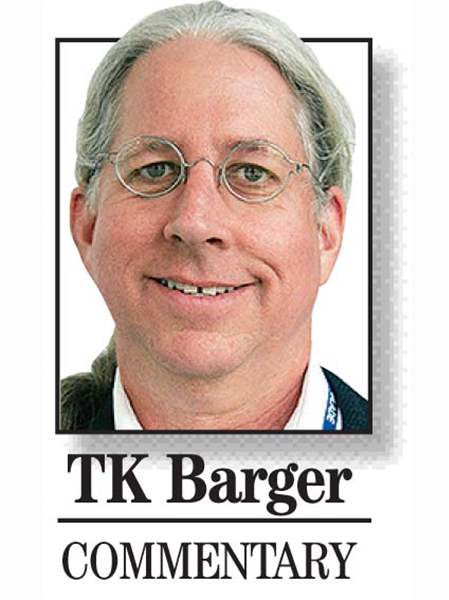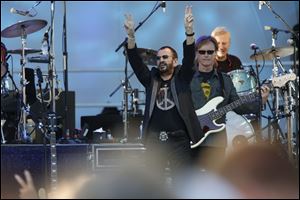
Checking a Beatle off the bucket list
‘Bucket list’ items can be tied to religion
7/5/2014

I got to see Ringo Starr and His All Starr Band in concert Tuesday. It was a special date night with my wife. We bought tickets to celebrate five years of my being cancer-free. You could call this a bucket list event, seeing a Beatle perform, a member of the most influential band of my lifetime. The bucket list, from a movie by that name, is your agenda of things you feel you must experience before you die, prior to your kicking the bucket.
Bucket lists have religious ties, in my mind. Whether you're “checking off” wonders of the world, experiencing a once-in-your-lifetime event, or encountering historical or cultural figures, it's something special to you or it wouldn't be on the list. It has the potential of producing the awe of being alive and aware. And it gives you a story, an experience you can relate. Ties to humanity, touching the extraordinary aspect of natural life—your list can be a religious document.

Ringo Starr performs with His All-Starr Band at the Toledo Zoo Amphitheater in Toledo, Ohio.
Bucket list experiences aren't automatically good ones. There are many stories of people meeting their heroes only to be disappointed that the person is all too human by being rude, for example. A hunter's hope to kill an exotic animal might result in people's disapproval of the goal being only a trophy. And sitting in the stadium for a Super Bowl or in a theater for a major awards ceremony might just confirm that staying home and watching it on TV is better.
But there's also always the possibility that it changes your life. I think of Malcolm X and his Islamic Hajj, how that deepened his faith and transformed his cultural leadership. It would be unusual if a person hiking the Appalachian Trail didn't develop deeper connections to the earth and humanity while walking from Georgia to Maine. Even fame, well applied, can make the world better; look at the contributions of Sidney Poitier and Harry Belafonte to the civil rights movement, at the same time the Beatles brought their music to America.
There are also bucket list times of no better, no worse, but some satisfaction of having a touchstone. My Canterbury tale doesn‘t match those of the pilgrims in Geoffrey Chaucer's classic book, but I'm glad I traveled there when I was in England.
Two hours at a concert featuring a former Beatle wasn't life-changing. Seeing Ringo at the Toledo Zoo in 2014 certainly isn't the same as seeing him on The Ed Sullivan Show in 1964, but I have one more connection to that event now.
The Beatles, of course, are in the Rock and Roll Hall of Fame. Three of the four members are also in the hall as solo artists; Ringo is the only one who is not. He might not have the best voice, but he had solo pop hits and he continues to entertain. Maybe my former boss at Us Weekly magazine, Jann Wenner—he is also editor and publisher of Rolling Stone and chairman of the Rock and Roll Hall of Fame Foundation—can wield his influence to have Ringo installed.
There were some direct associations with religion at the concert. Ringo said “Hare Krishna” in the song “It Don't Come Easy.” Richard Page sang his former band Mr. Mister's 1986 hit “Kyrie” that uses the Greek phrase “Kyrie eleison,” meaning “Lord, have mercy.” Supporting musician Warren Ham has been a contemporary Christian music artist.
Yes, Ringo’s band made headlines nearly 50 years ago when John Lennon said the Beatles were “more popular than Jesus,” but he has been more low-key; in 2010 he told the Christian Post that God was in his life. The words Ringo preaches are peace and love. At the close of the concert he said, “Remember, peace and love is the only way.” People of faith can be more attentive to that.